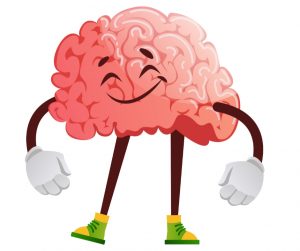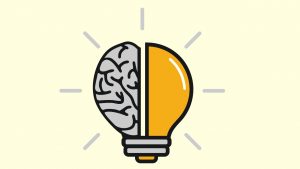Differences Between Wisdom and Knowledge: In life, we strive for knowledge and wisdom. Although knowledge and wisdom are similar concepts, they are distinct. Thou Because both are nouns that are used in the English language, many people mix up knowledge with wisdom. However, they are not the same.
Many experts and notable people have provided statements and sayings about knowledge and wisdom that describe the meaning of these two terms. “Knowledge is power,” claimed Sir Francis Bacon, and “Wisdom is the highest of all five virtues,” according to Gautam Buddha.
Knowledge is the facts, information, and abilities obtained through study or education, whereas wisdom is the attribute of having experience, knowledge, and sound judgment. The wise application of knowledge is sometimes referred to as wisdom. We’ve simplified the difference between knowledge and wisdom in this post.
Recommended: Differences between Being Smart and Intelligent
Definition of Wisdom
Wisdom is the ability to comprehend or discern what is true, right, or long-lasting. Knowledge, experience, and excellent judgment are the three components of wisdom. Wisdom is impossible to get without information, yet knowledge does not equal wisdom. Wisdom is also defined as the application of knowledge.

Understanding how to use a weapon, for example, is not the same as knowing when to use it. Wisdom cannot be acquired only through education or even study; it necessitates both experience and sound judgment.
Wisdom, on the other hand, goes much further because it entails gaining a deep understanding of life, how the world works, and how information influences one’s life on a personal level. Experience is typically linked to wisdom. People who are smart and those who have a lot of experience are often used interchangeably.
Also see: Which Is Better, Business or Job? Answered
Definition of Knowledge
Facts, information, and skills obtained via learning and education are referred to as knowledge. Knowledge can be defined as knowing and understanding a given subject as well as being aware of certain ideas. Learning, education, and training are all methods for acquiring knowledge.

A subject’s theoretical and practical features can both be referred to as knowledge. When we learn a language, for example, we not only learn new facts and knowledge about the language, but we also get new skills. The acquisition of new knowledge is the end outcome of this learning process.
In everyday life, knowledge of specific subjects and concepts is crucial. For example, you have to have a specific understanding of traffic rules even if you are strolling on the road. Before crossing the street, we all know that we should wait for the green signal. But how did we come to know so much? Different people learn it in different ways; some may have learned it through observation, while others may have been taught.

Also see: Differences Between Information and Data
The key Differences between Wisdom and Knowledge
1. Knowledge is the outcome of gathering information, and wisdom is the consequence of putting that learning to use in everyday life. When someone reads, they gain knowledge, but when they apply that knowledge to make judgments, such as recognizing what is good and wrong, they gain wisdom.

2. Wisdom comes from experience and knowledge, while knowledge comes from reading or learning. Wisdom requires a lot of knowledge. To become knowledgeable, one has to read and learn. If you have the resources necessary, such as textbooks or a mentor, developing information will suffice.
Wisdom, on the other extreme, comes from having enough information and experience in everyday life to deploy a certain knowledge in circumstances like picking between two options and judging many aspects of life.
Also see: Advantages and Disadvantages of Inquisitorial System
3. Knowledge is widely obtainable. Change happens over time, yet Wisdom is eternal. One daily acquires new knowledge Consequently, their understanding of things Changes quickly. On the other hand, wisdom is However, it is incredibly timeless.
It is difficult to be wise today and lose it the following day. When a person is wise, there is a sign there’s a chance it will be for the longest time possible. Of course, this necessitates being accompanied by continuous education and acquiring information.
4. When answering a simple inquiry, one uses their knowledge; but, when judging and making wise decisions, one uses their wisdom. Answering a test, for example, requires topic knowledge.
When there are several options or moral dilemmas to consider, such as picking between different possibilities that could lead to different outcomes or determining if a certain notion is good or evil, wisdom is used.
Also see: How to think and argue like a lawyer
5. Knowledge is selective by nature; it only saves specialized information. Wisdom, on the other hand, is thorough and integrated. Wisdom is non-deterministic, whereas knowledge is deterministic. The knowledge approach is theoretical.
Wisdom, on the other hand, takes a spiritual approach. Wisdom defines a person’s character; knowledge represents a person’s collection of truths. Wisdom refines the personality while knowledge provides information. Knowledge has the same relationship with the mind as wisdom does with the soul.
6. Although not everyone may be wise, practically everyone can be well knowledgable. By acquiring information, anyone can learn something new. However, not everyone with knowledge is wise. They will not be considered intelligent until they put their knowledge to good use and apply it in their everyday lives.
Also see: Differences Between Extensive and Intensive Reading
Turning Knowledge into Wisdom
Knowledge is far easier to seek and get than wisdom. As a result, there are far more “clever individuals” in the world than “wise men” (or women). Bridging the gap between adequate information and intelligent application of information can be very simple. Wisdom is the application of knowledge for the benefit of others.
There are numerous examples of information and knowledge being translated into wise action, which include: for example:
a. Reading blogs/articles and attending lectures on the best trading tactics for diversifying a portfolio, then applying and mastering those strategies.
b. Reading articles or speaking with a nutritionist about the best meals to assist someone loses weight, then preparing and eating the meals.
c. Watching a video of the most recent Zen meditation technique and then putting the techniques into practice.
For instance, in the practice of corporate finance, knowledge refers to all of the information found in a firm’s financial accounts. Wisdom is the capacity to analyze such knowledge – utilizing abilities like financial analysis and forecasting – and get at a valuation that accurately reflects a company’s potential to run as a profitable corporation.
Knowledge and the ability to properly acquire knowledge are both beneficial to wisdom.
Wisdom, on the other hand, is the capacity to put one’s knowledge to good use. Knowledge is frequently referred to as “externally generated,” which means that it is derived mostly from external sources such as books, classroom lectures, movies, and so on. Wisdom, on the other hand, is thought to be mostly derived from “internal sources,” or one’s introspective thinking, analysis, and judgment. Knowledge cannot be learned or applied without wisdom, yet wisdom does not always guide or increase knowledge.
Recommended: Best Books On Financial Intelligence 2022
Conclusion
Following the above points, it can be established that knowledge and wisdom are distinct ideas, but they are interconnected. It is possible to know without wisdom, but wisdom without knowledge is impossible. Wisdom, unlike knowledge, has no evident limit.
Knowledge can have both positive and negative consequences in the sense that it can be beneficial to others when used correctly, but it can also be harmful to others when used incorrectly. Wisdom, on the other hand, has only good outcomes because it is the application of information with an active and admirable attitude.

Edeh Samuel Chukwuemeka, ACMC, is a lawyer and a certified mediator/conciliator in Nigeria. He is also a developer with knowledge in various programming languages. Samuel is determined to leverage his skills in technology, SEO, and legal practice to revolutionize the legal profession worldwide by creating web and mobile applications that simplify legal research. Sam is also passionate about educating and providing valuable information to people.